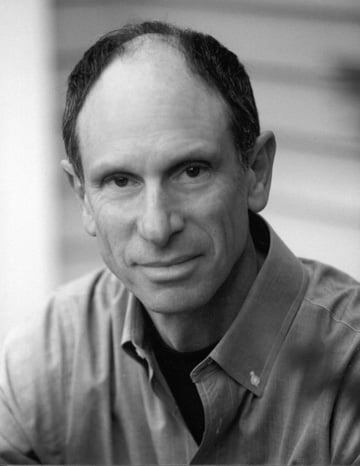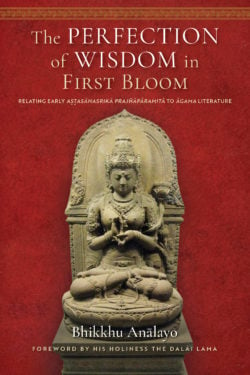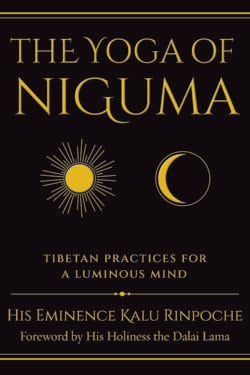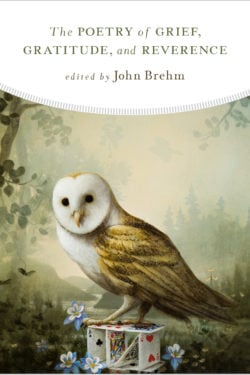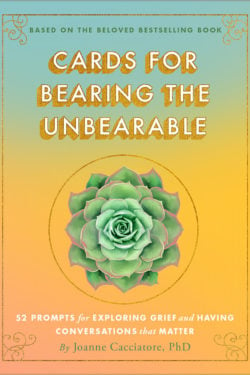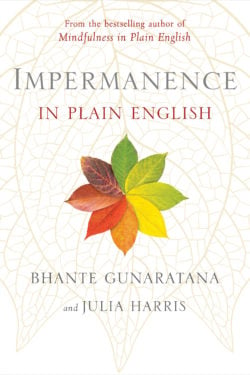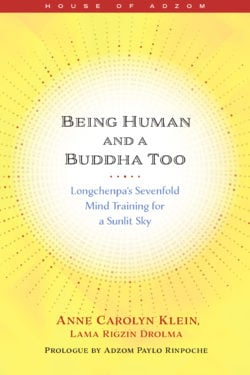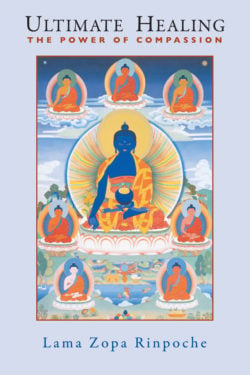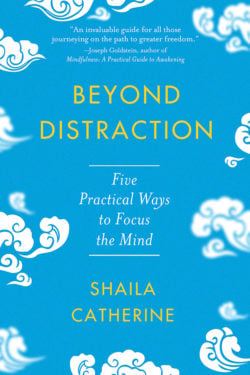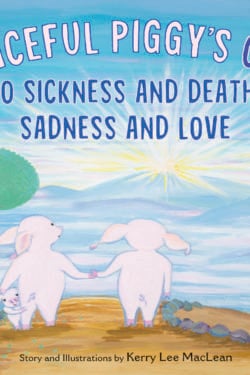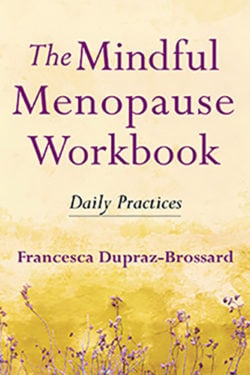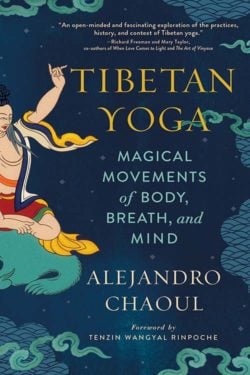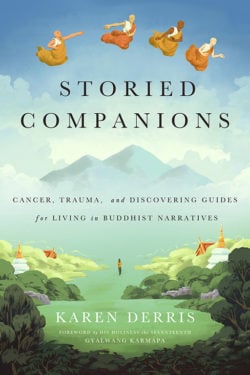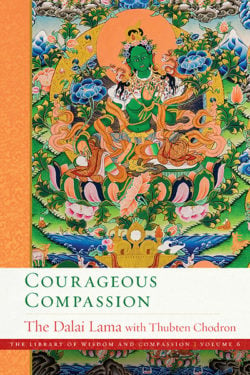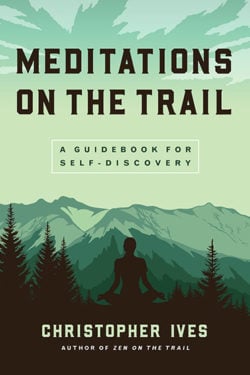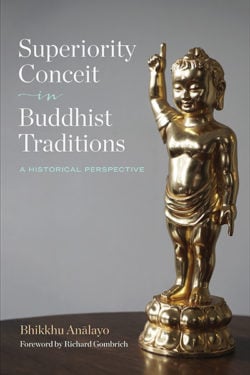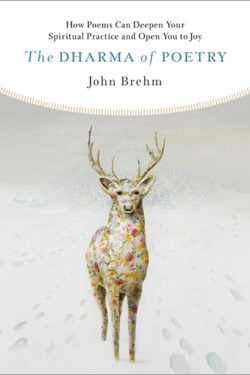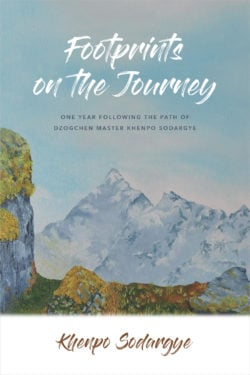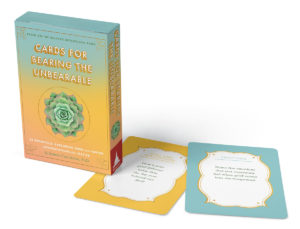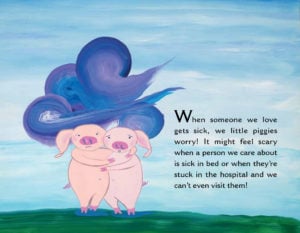Joseph Goldstein has been leading insight and loving-kindness meditation retreats worldwide since 1974. He is a cofounder of the Insight Meditation Society (IMS) in Massachusetts, where he continues as one of the resident guiding teachers. In 1989, together with several other teachers and students, he established the Barre Center for Buddhist Studies and, later, The Forest Refuge. A seminal figure in the emergence of Buddhism in the West, Joseph is the author of numerous books including, One Dharma. He lives in Barre, Massachusetts.
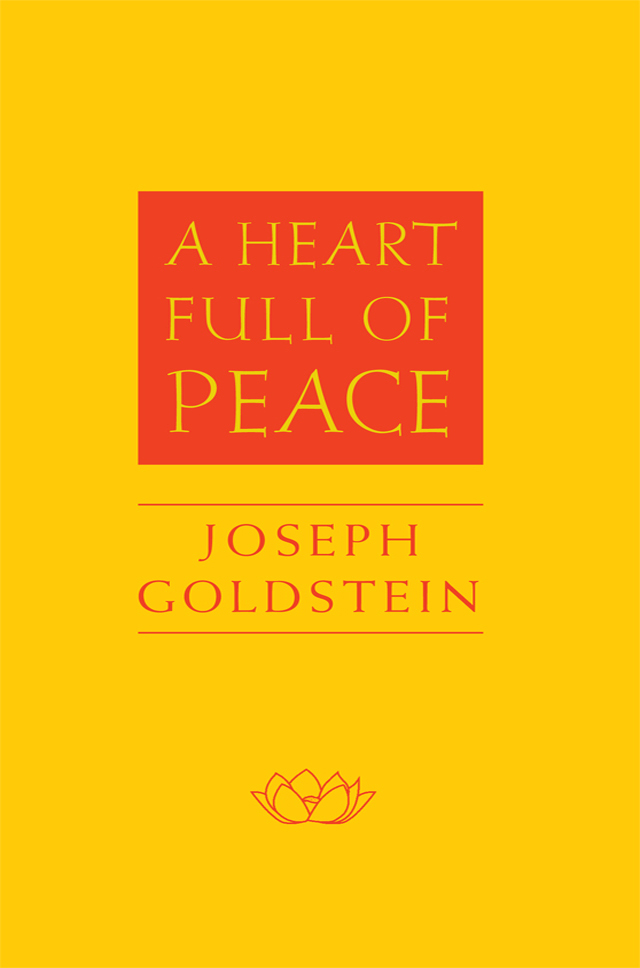
“In this short but substantive volume, Joseph Goldstein, who lectures and leads retreats around the world, presents his thoughts on the practice of compassion, love, kindness, restraint, a skillful mind, and a peaceful heart as an antidote to the materialism of our age.”—Spirituality & Practice
A HEART FULL OF PEACE
- Add to Cart Hardcover $9.95
- Add to Cart eBook $9.99
As seen in O, The Oprah Magazine.
Also featured in Shambhala Sun, Tricycle, and Buddhadharma.
Love, compassion, and peace—these words are at the heart of all spiritual endeavors. Although we intuitively resonate with their meaning and value, for most of us, the challenge is how to embody what we know: how to transform these words into a vibrant, living practice. In these times of conflict and uncertainty, this transformation is far more than an abstract ideal; it is an urgent necessity. Peace in the world begins with us. This wonderfully appealing offering from one the most trusted elders of Buddhism in the West is a warm and engaging exploration of the ways we can cultivate and manifest peace as wise and skillful action in the world.
This charming book is illuminated throughout with lively, joyous, and sometimes even funny citations from a host of contemporary and ancient sources—from the poetry of W.S. Merwin and Galway Kinnell to the haiku of Issa and the great poet-monk Ryokan, from the luminous aspirations of Saint Francis of Assisi to the sage advice of Thich Nhat Hanh and the Dalai Lama.
Discover More
The Perfection of Wisdom in First Bloom
See the formative years of Mahayana Buddhist literature through the lens of the Perfection of Wisdom, expertly analyzed by the venerable scholar-monk Bhikkhu Analayo.
In this work we have a rare perspective on the early history of Mahayana Buddhism and the Perfection of Wisdom (Prajnaparamita), as far as this is still accessible in surviving texts. With his characteristic clarity and precision, Bhikkhu Analayo critically analyzes early Perfection of Wisdom literature based on the earliest extant versions of the Astasahasrika Prajnaparamita, or the Perfection of Wisdom in Eight Thousand Lines, one in Chinese and the other in Gandhari—one of the oldest surviving Mahayana manuscripts discovered to date. In reading this text from the viewpoint of early Buddhist literature, the author shows that what has generally been considered a sharp rupture in the formation of the Mahayana turns out to be more of a gradual evolution.
With his command of the languages of the ancient Buddhist world, scholar-monk Bhikkhu Analayo sifts through the layers of history and unveils new perspectives on the ideas and figures in early Perfection of Wisdom and Mahayana literature, covering such topics as the rhetoric of emptiness and the emerging bodhisattva ideal, as well as the status of women and the practice of self-immolation. In doing so, Bhikkhu Analayo reveals fresh insights into the gradual development that informs the emergence of early Perfection of Wisdom literature. This is a rare opportunity to peer through a window at the beginnings of Mahayana thought—before the traditions had coalesced into the familiar forms we see today.
The Yoga of Niguma
Now available! Get 20% off the cover price with code niguma20 until August 5.
Immerse yourself in the extraordinarily transcendent practice of the yoga of Niguma.
The yoga of Niguma comes to us from a secret tradition passed down over hundreds of years by Buddhist yogis in Tibet. The practice originated with the eleventh-century female yogini Niguma, who mastered and transmitted a tradition of remarkable practices that culminate in physical, spiritual, and emotional wellness. In this book, His Eminence Kalu Rinpoche, a Tibetan master who holds this lineage for today’s generation, is now opening up the practice to make its extraordinary benefits accessible to the modern yogi.
The yoga of Niguma consists of twenty-five sets of yogic exercises. Some are physically challenging while others are quite subtle in nature; all are grounded in meditation on the breath. Kalu Rinpoche illuminates the practice by sharing his own personal journey with the yoga of Niguma and how the lineage came to be. He also teaches us how we can prepare the mind for this practice with meditation and how to balance our emotions. Then, Rinpoche takes us step-by-step through the twenty-five illustrated sequences of Niguma yoga. Coauthor Michele Loew, an international yoga teacher, shares supportive Hatha yoga techniques that will bolster your Niguma yoga practice.
The yoga of Niguma is a revered method that integrates body, mind, and breath. Dive in to discover for yourself a gradual, profound groundswell of subtle awakening.
Rinpoche and Michele have recorded two full-length videos that demonstrate Niguma yoga sequences and supportive hatha yoga postures and supplement the instructions in the book. Click here to learn more and watch the videos.
You may also be interested in Rinpoche’s courses from Wisdom, Niguma’s Dream Yoga and The Illusory Body and Mind.
The Poetry of Grief, Gratitude, and Reverence
Explorations on a journey through the darkest and brightest moments of our lives, the poems gathered here are explorations of loss, of thanksgiving, of transformation. Some show a path forward and others simply acknowledge and empathize with where we are, but all are celebrations of poetry’s ability to express what seemed otherwise inexpressible, to touch deep inside our hearts—and also pull ourselves out of our selves and into greater connection with the world around us.
Includes poems by
Rainer Maria Rilke, Robert Frost, Elizabeth Bishop, Czesław Miłosz, Seamus Heaney, Billy Collins, Joy Harjo, Danusha Laméris, Ada Limón, Kevin Young, Arthur Sze, Ellen Bass, Li-Young Lee, Natasha Trethewey, and many more, plus the editor’s essay on appreciative attention.
John had recorded guided poetry meditations to accompany several of the poems found in this anthology. To learn more and listen to these meditations, please click here.
Listen to a Wisdom Dharma Chat with John and host Daniel Aitken recorded in October 2023.
Cards for Bearing the Unbearable
Grief sometimes leaves us without words. Yet narrating our feelings, thoughts, and experiences can be so helpful in relating to our inner world. These cards are an invitation to begin that process.
Impermanence in Plain English
The bestselling author of Mindfulness in Plain English guides the reader toward a direct and personal realization of one of the foundational tenets of Buddhism: all things that arise must pass away.
Once-youthful bodies grow old and weary. New thoughts, feelings, and sensations arise and fade every second. Impermanence is not some abstract metaphysical idea. This is the Dhamma, and you can see it for yourself.
Drawing from Pali scriptures and writing with fresh, direct language, Bhante Gunaratana and his student Julia Harris highlight the Buddha’s exhortation that we must directly realize for ourselves the liberating insights that free us from suffering and cyclic existence, without relying only on the word of religious authorities or academic or philosophical musings.
Being Human and a Buddha Too
In writing that sparkles and inspires, Anne Klein (Lama Rigzin Drolma) shows us how to liberate our buddha nature to be both human and a buddha too.
This first volume in the House of Adzom series centers on Longchenpa’s seven trainings in bodhicitta, our awakened mind, the ultimate purpose of our practice and training. Anne Klein’s original composition masterfully weaves in Adzom Paylo Rinpoche’s commentary and Jigme Lingpa’s five pith practices and commentary on the trainings, in keeping with Longchenpa’s skillful integration of sutra, tantra, and Dzogchen, to resolve our most challenging questions about what awakening involves and how it relates to the truth of our human situation right now. As foundational teachings for Dzogchen practitioners, the seven trainings are framed as contemplations on impermanence, the adventitiousness of happiness and its short duration, the multiple causes of death, the meaninglessness of our worldly activities, reliance on the Buddha’s good qualities, the teacher’s pith instructions, and ultimately nonconceptual meditation on bliss and emptiness, clarity and emptiness, and reality itself.
Ultimate Healing
We experience illness on a physical level, but in order to be healed, we must understand where true healing begins: within our hearts and minds. In Ultimate Healing, internationally renowned meditation master Lama Zopa Rinpoche helps us to recognize the root of illness and gives us the tools to create our future happiness. Beginning with stories of people who have recovered from disease through meditation, Rinpoche addresses the central role played by karma and by the mental habit of “labeling” in causing illness, and shows how meditation and other thought techniques for developing compassion and insight can eliminate the ultimate cause of all disease.
Ultimate Healing shows us that by transforming our minds, especially through the development of compassion, we can eliminate the ultimate cause of all disease. In addition to relating stories of people who have recovered from disease through meditation, Lama Zopa presents practical healing meditations, including white-light healing, compassion meditation, “taking and giving”, and techniques to cure depression.
Beyond Distraction
The mind can be a potent tool, used to guide extraordinary achievements, inspire good works, and incline your spiritual path toward peace and awakening. But the mind can also produce thoughts that lead to suffering. For many people, thoughts run rampant and seem to oppress or control their lives. Even the Buddha tells us that before his enlightenment, he sometimes found his mind preoccupied by thoughts connected with sensual desire, ill will, and harm. But he figured out how to respond to thoughts skillfully and developed a step-by-step approach to calm the restless mind. Now, Insight Meditation teacher Shaila Catherine offers an accessible approach to training the mind that is guided by the Buddha’s pragmatic instructions on removing distracting thoughts. Drawing on two scriptures in the Middle Length Discourses of the Buddha, Shaila shows you how to overcome habitual modes of thinking, develop deeper concentration, and discover the insights into emptiness that are vital for a liberating spiritual path.
Following the Buddha’s pragmatic approach, Shaila guides you through five steps for overcoming distraction and focusing the mind:
- Replace unwholesome thoughts with wholesome thoughts.
- Examine the dangers of distracting thoughts.
- Avoid it, ignore it, forget it.
- Investigate the causes of distraction.
- Apply determination and resolve.
Each chapter includes exercises and reflections to help you cultivate the five steps to deeper concentration. You’ll learn about your mind and develop your ability to direct your attention more skillfully in meditation and daily activities. And ultimately, you’ll discover for yourself how these five steps boil down to one key realization: In the moment you recognize that a thought is just a thought, you will find yourself on the path to a life of remarkable freedom.
A Peaceful Piggy’s Guide to Sickness and Death, Sadness and Love
When someone we love gets sick, we little piggies worry! It can feel scary when a person we care about is sick or in a hospital. Luckily, there is one good thing we peaceful piggies can do: meditate.
This is a story about love.
Experiencing a loved one’s illness or death is challenging for both children and their grownups. With three distinct sections to choose from—when someone we love is sick, dying, or has died—this guide will help you easily find soothing and practical mindfulness activities focused on what your young one needs in order to guide them through their big emotions and questions. These practices will help calm and empower children—and their grownups—as they discover they can still be with their loved ones through their heart connection, no matter where they are.
Click here for an animated video based on the story.
The Mindful Menopause Workbook
The Mindful Menopause Workbook will help you bring mindfulness into your day-to-day activities during menopause. The teachings, exercises, and meditations will show you how to recognize and achieve a more balanced, peaceful, and joyful orientation to whatever you experience at menopause and beyond.
A year’s worth of daily teachings will offer you micro-moments of self-care and self-development—mentally, physically, and spiritually. Following each teaching is space for you to journal whatever thoughts, emotions, or sensations arise. The exercise section includes an illustrated guide to yoga postures and outlines sequential poses that foster greater ease and awareness of the body, while the guided meditations and breath exercises promote body-mind unity through expanded peaceful awareness. The book addresses issues common to women during menopause sensitively and gives recommendations for dealing with common complaints such as insomnia, fatigue, low energy and libido, anxiety, depression, hot flashes, physical discomfort, poor digestion, and weight gain.
Together, these teachings, exercises, and reflections will help you approach menopause mindfully, and joyfully, as you deepen your practice and transition into a new stage of life.
“The Mindful Menopause Workbook is an ideal companion for navigating the transitional tidal waves of feminine growth. It is a great resource to rejuvenate the heart, mind, and body as you step into the next phase of life with renewed hope, confidence, and wisdom. Francesca Dupraz-Brossard has mapped out exciting pathways for women to appreciate and connect with their heart, mind, and body with love, compassion, joy, and equanimity, and to rediscover the beauty of their lives.”
—Dr. Charika Marasinghe, PhD, trustee, Vishva Niketan International Peace Centre
Tibetan Yoga
Discover ancient Tibetan yogic practices that integrate body, breath, and mind on the journey to personal cultivation and enlightenment.
Tibetan Yoga offers accessible instructions for performing the ancient yogic techniques of Tibet’s Bön religion. This is Tibetan yoga, or trul khor, a deeply authentic yogic practice. Drawing on thirty years of training with Bön’s most senior masters as well as advanced academic study, Dr. Alejandro Chaoul offers expert guidance on practices that were first developed by Bön masters over a millennia ago, framing them according to the needs of contemporary yoga practitioners and meditators.
No matter their level of experience, dedicated practitioners of Tibetan yoga will discover their ability to clear away obstacles and give rise to meditative states of mind. In Tibetan Yoga, you’ll learn what it means to practice for the benefit of all beings and to experience your body as a mandala, from center to periphery. These movements help you live in a more interconnected mind-breath-body experience, with benefits including better focus, stress reduction, the elimination of intrusive thoughts, better sleep, and general well-being.
Save 20% on the Tibetan Yoga online course when you buy this book! Your discount code is at the end of the book.
Awake Where You Are
“Embodied awareness is the way back home—intimacy with where and how we are right now, with what is happening and how we are meeting it. This book will lead you into the heart of your life, into your body, where everything happens—with quality of listening rather than knowledge, of feeling rather than reaction. Practicing in this way is radically transformative.”
—Martin Aylward
Pulled around by desires and distractions, we’re so easily disconnected from ourselves. Life is happening right in front of us, and within us—but still, we manage to miss so much of it.
Awake Where You Are provides the antidote, inviting us to go deep into our own bodies, to inhabit our sensory experience carefully; to learn the art of living from the inside out, and in the process to find ease, clarity, and an authentic, unshakeable freedom.
The practices in the book literally bring us back into our skin, where we can reconnect with a more rich, meaningful, and peaceful life. Aylward writes with sophisticated subtlety, as well as the heart-opening simplicity and clarity born of deep experience.
More than a meditation guide, this book is a guide to living an embodied life. You’ll learn about the following areas and practices:
-
- Understanding and liberating our primal human drives.
- Integrating psychological understanding with meditative practice.
- Investigating the nuances of love.
“Martin is a marvelous teacher and offers us the refreshing wisdom of an embodied life.”
—Jack Kornfield, author of No Time Like the Present
Storied Companions
“With my diagnosis of grade IV brain cancer, I no longer observe the truth of impermanence from a critical, analytical distance. I am crashing into it, or it into me.”
Facing a terminal cancer diagnosis, Karen Derris—professor, mother, and Buddhist practitioner—instinctually turned to books. By rereading ancient Buddhist stories with fresh questions and a new purpose in mind, she discovered evolving ways to make them immediate and real. Storied Companions interweaves Karen’s memoir of her lived experiences of trauma and terminal illness with stories from Buddhist literary traditions, sharing with the reader how she found ways to live fully even with the reality that she won’t live as long as she needs—or wants.
Using her knowledge, practice, and imagination, Karen illustrates how placing yourself within narratives can turn them from distant and static sources into companions, and from companions into guides. Reading along with her, you’ll realize how this practice of reading and these ancient narratives can help us come to terms with impermanence, develop empathy and compassion, and realize our own interconnectedness.
Honest, powerful, and insightful, Storied Companions itself becomes an invaluable companion, guiding the reader to discover new ways of facing and experiencing life, death, and impermanence.
Courageous Compassion
Courageous Compassion, the sixth volume of the Library of Wisdom and Compassion, continues the Dalai Lama’s teachings on the path to awakening. The previous volume, In Praise of Great Compassion, focused on opening our hearts with love and compassion for all living beings, and the present volume explains how to embody compassion and wisdom in our daily lives. Here we enter a fascinating exploration of bodhisattvas’ activities across multiple Buddhist traditions—Tibetan, Theravāda, and Chinese Buddhism.
After explaining the ten perfections according to the Pāli and Sanskrit traditions, the Dalai Lama presents the sophisticated schema of the four paths and fruits for śrāvakas and solitary realizers and the five paths for bodhisattvas. Learning about the practices mastered by these exalted practitioners inspires us with knowledge of our minds’ potential. His Holiness also describes buddha bodies, what buddhas perceive, and buddhas’ awakening activities.
Courageous Compassion offers an in-depth look at bodhicitta, arhatship, and buddhahood that you can continuously refer to as you progress on the path to full awakening.
Learn more about the Library of Wisdom and Compassion series.
Meditations on the Trail
Meditations on the Trail offers a rich array of do-anywhere meditations that will help you explore and deepen your connection to nature, and yourself, in new ways, making the most of your time on the trail.
This small book—perfect for throwing in a daypack or a back pocket as you head out for the trail—is filled with practices to take you into the heart of the natural world and uncover your most vibrant self. You’ll return home grateful, more aware of interconnection, and maybe just a little wiser.
You may also be interested in Chris’s other books, Zen on the Trail, which explores the broad question of how to be outside in a meditative way, and Zen Ecology, in which he reveals a way of living that can help you slow down, stay grounded, and deal with all that is flying at you—and at the same time can help you reduce your ecological impact and engage more effectively with the climate crisis.
Superiority Conceit in Buddhist Traditions
Armed with his rigorous examination of the canonical records, respected scholar-monk Bhikkhu Anālayo explores—and sharply criticizes—four examples of what he terms “superiority conceit” in Buddhism:
- the androcentric tendency to prevent women from occupying leadership roles, be these as fully ordained monastics or as advanced bodhisattvas
- the Mahayana notion that those who don’t aspire to become bodhisattvas are inferior practitioners
- the Theravada belief that theirs is the most original expression of the Buddha’s teaching
- the Secular Buddhist claim to understand the teachings of the Buddha more accurately than traditionally practicing Buddhists
Ven. Anālayo challenges the scriptural basis for these conceits and points out that adhering to such notions of superiority is not, after all, conducive to practice. “It is by diminishing ego, letting go of arrogance, and abandoning conceit that one becomes a better Buddhist,” he reminds us, “no matter what tradition one may follow.”
Thoroughly researched, Superiority Conceit in Buddhist Traditions provides an accessible approach to these conceits as academic subjects. Readers will find it not only challenges their own intellectual understandings but also improves their personal practice.
The Dharma of Poetry
In The Dharma of Poetry, John Brehm shows how poems can open up new ways of thinking, feeling, and being in the world. Brehm demonstrates the practice of mindfully entering a poem, with an alertness, curiosity, and open-hearted responsiveness very much like the attention we cultivate in meditation. Complete with poetry-related meditations and writing prompts, this collection of lively, elegantly written essays can be read as a standalone book or as a companion to the author’s acclaimed anthology The Poetry of Impermanence, Mindfulness, and Joy.
Listen to a Wisdom Dharma Chat with John and host Daniel Aitken recorded in October 2023.
Footprints on the Journey
This personal diary that the renowned Dzogchen master Khenpo Sodargye kept for one year gives serious Dharma practitioners a lifetime of inspiring, wise guidance for practicing right conduct on the path. The backdrop is the Tibetan plateau, from which Khenpo invites us to see the world—from native people to a spider, from vast galaxies to a water droplet—as he does, with candor and humor, and with a Dzogchen master’s sharp analysis. He shares with us his perceptions of this world, describing his ups and downs in a way that we can relate to and be inspired by, even if we do not have the fortitude to stand up to the oppression of crustaceans or to ransom yaks from the slaughterhouse. Spontaneous and lively, the entries play out the vicissitudes of his life throughout a challenging year, tracking the passage of his thoughts and actions, leaving footprints for whoever is able to follow.
Other books by Khenpo Sodargye include What Makes You So Busy?, Tales for Transforming Adversity, and The Diamond Cutter Sutra.

